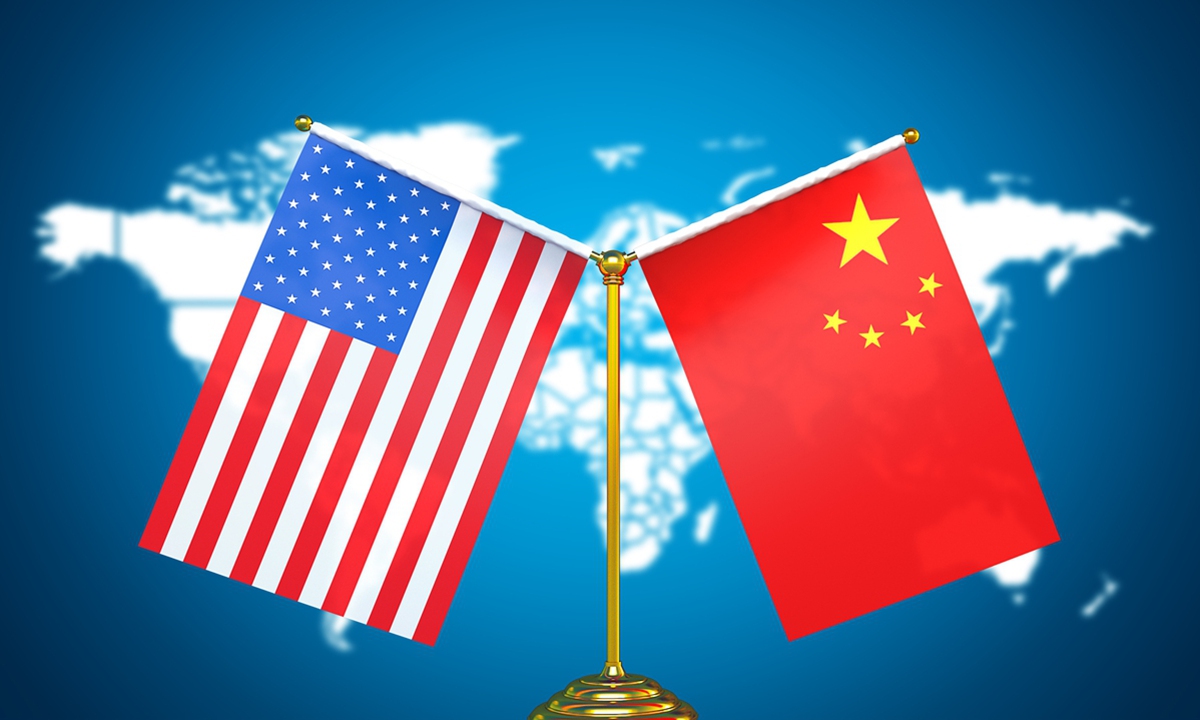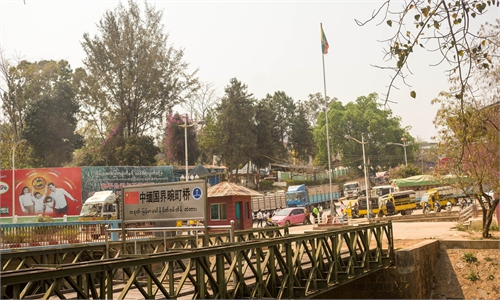Sullivan's China visit: the importance of a 'correct understanding' of China: Global Times editorial

Photo: VCG
At the invitation of Member of the Political Bureau of the CPC Central Committee and Director of the Office of the Central Commission for Foreign Affairs Wang Yi, US National Security Advisor (NSA) Jake Sullivan will visit China from August 27 to 29 and the two sides will hold a new round of China-US strategic communication. According to the Ministry of Foreign Affairs of China, Director Wang Yi will have an in-depth exchange of views with NSA Sullivan on China-US relations, sensitive issues, and major international and regional hotspots. A senior US official noted that "each time the two have met, they have typically spent about 10 to 12 hours ... We expect to follow the same format in Beijing."Sullivan's visit to China holds special significance in the recent series of communications between China and the US. This marks the first visit to China by a US NSA in eight years, Sullivan's first visit to China, and an important step in implementing the consensus reached by the two heads of state in San Francisco. It also witnesses the crucial role that the strategic communication channel between China's Director of the Office of the Central Commission for Foreign Affairs and the US NSA continues to play. Given the positive outcomes achieved through this strategic communication channel over the past year and a half, both China and the US have placed certain positive expectations on Sullivan's visit.
China-US relations are currently at a critical juncture of halting the downward trend and stabilizing. On one hand, both sides have established or resumed more than 20 dialogue and communication mechanisms. Diplomatic, financial, law-enforcement and climate change teams, as well as militaries from both countries, are maintaining communication, and the exchange of people between the two nations is increasing, continuously strengthening the "foundation" for the stable development of China-US relations. On the other hand, the US has not reduced its actions to contain and suppress China, constantly eroding the hard-earned consensus and mutual trust between the two countries.
Keeping strategic communication channels open and effective not only helps ensure a stable atmosphere and expectations in bilateral relations but also aids in clarifying misunderstandings and avoiding misjudgments on some major issues.
Stabilizing China-US relations is undoubtedly a consensus and a common interest in this strategic communication. China's invitation to Sullivan to visit reflects a responsible and constructive attitude toward China-US relations, neither underestimating the difficulties and challenges in the relationship nor giving up hope and efforts to stabilize it. A US official has also stated that this visit is "partly about maintaining stability during a period of high political activity in the United States and … general geopolitical uncertainty." The development of China-US relations over more than half a century also shows that communication and dialogue are better than conflict and confrontation, and the more comprehensive the dialogue, the more likely bilateral relations will tend to stabilize.
However, relying solely on the consensus and willingness to stabilize the relationship between the two sides is not enough to build a truly constructive China-US relationship. Whether the China-US relationship can stop the downward trend and stabilize depends on whether the correct strategic understanding can be established to actively explore the right way for the two countries to coexist, and whether there is the ability and practical actions to effectively manage differences. From this perspective, there is a significant gap between the actions and words of the US and its stated desire to maintain stable US-China relations. It is precisely because of this that in this strategic communication, the Chinese side will continue to discuss with its US counterpart about issues related to strategic understanding between China and the US, the boundaries between national security and economic activities, and will focus on expressing serious concerns about the Taiwan question, development rights, and China's strategic security, clarifying its firm stance, and making serious demands.
In fact, the public opinion surrounding Sullivan's visit to China also reflects the inconsistency of US actions and words toward China, as well as the confusion and disruption caused by incorrect positioning and understanding of China. Approximately at the same time Sullivan's visit to China was confirmed, the US added multiple Chinese entities to its export control list over alleged Russia-related issues, and some high-ranking officials of the Democratic Progressive Party authorities are reportedly planning a "secret visit to the US" this week. Whether it is a coincidence or intentional, such actions have created obstacles for the US to achieve its goals. The US needs to fundamentally change its perception of China and its strategic positioning toward China, including the politicization and securitization of economic and trade issues, interference in the South China Sea issue, and obstruction of normal bilateral personnel exchanges through visas and other means.
There is high attention from all sectors on what Sullivan will specifically discuss during his visit to China and how the talks will go. As the NSA to the US president, Sullivan, first of all, needs to "know how to listen" if he wants to achieve good results for the strategic communication in China. The issue of strategic cognition has always been the first button that must be fastened in China-US relations, and many of the current problems between China and the US stem from America's incorrect perception of China. For Sullivan's first visit to China, truly listening to and understanding Beijing's words, and making a proper contribution to establishing the correct understanding between China and the US, should be one of the standards to evaluate the success of his visit to China.

